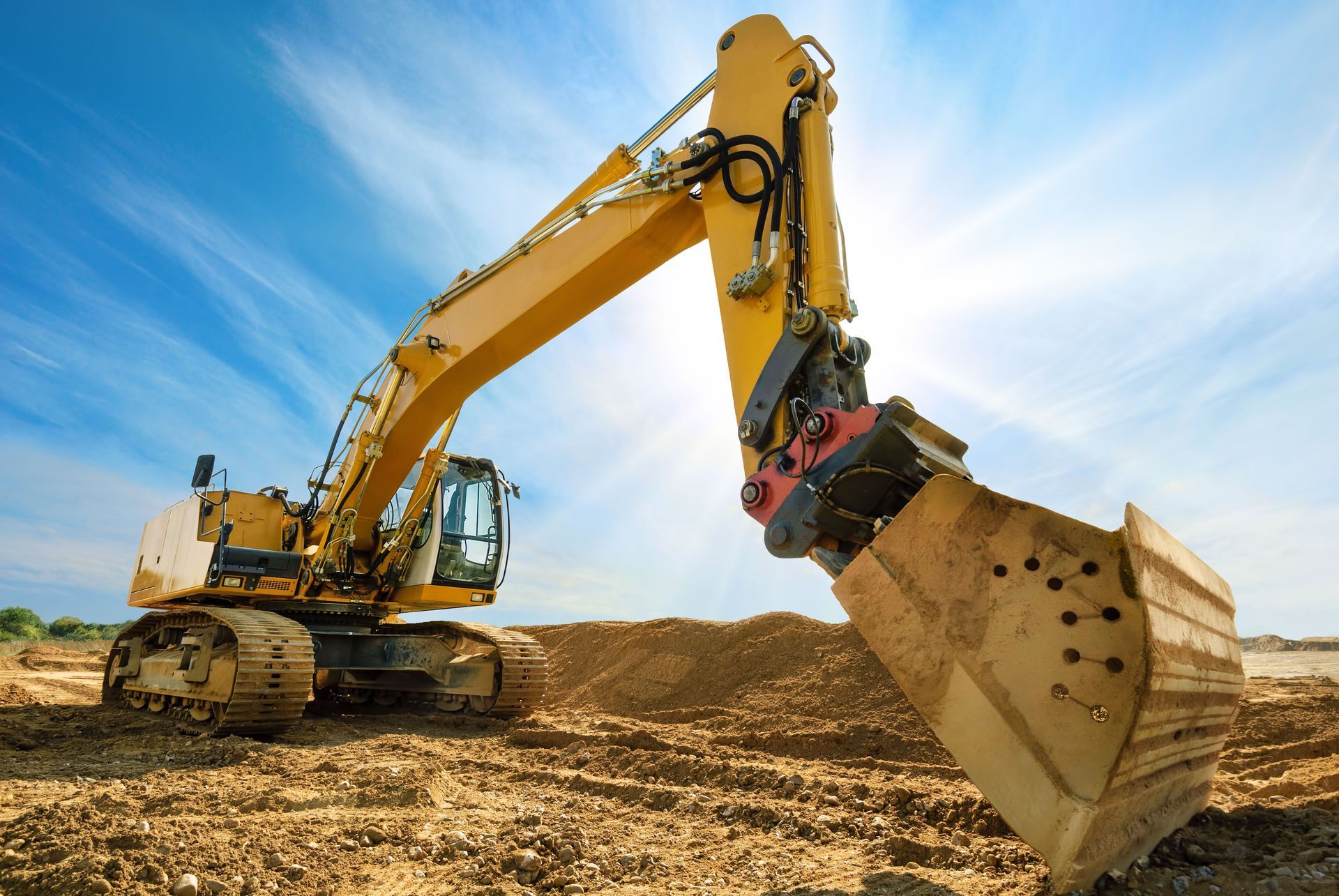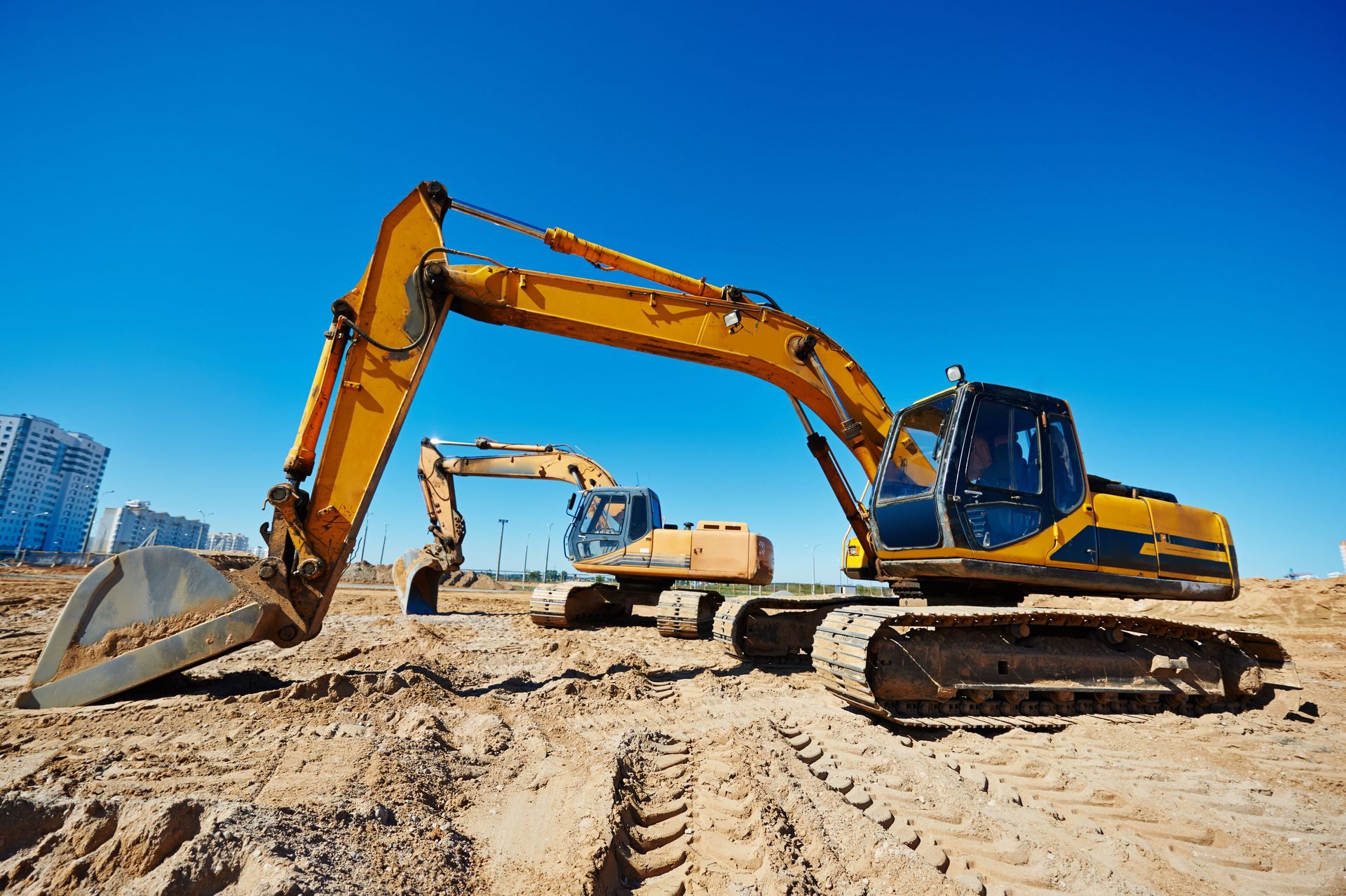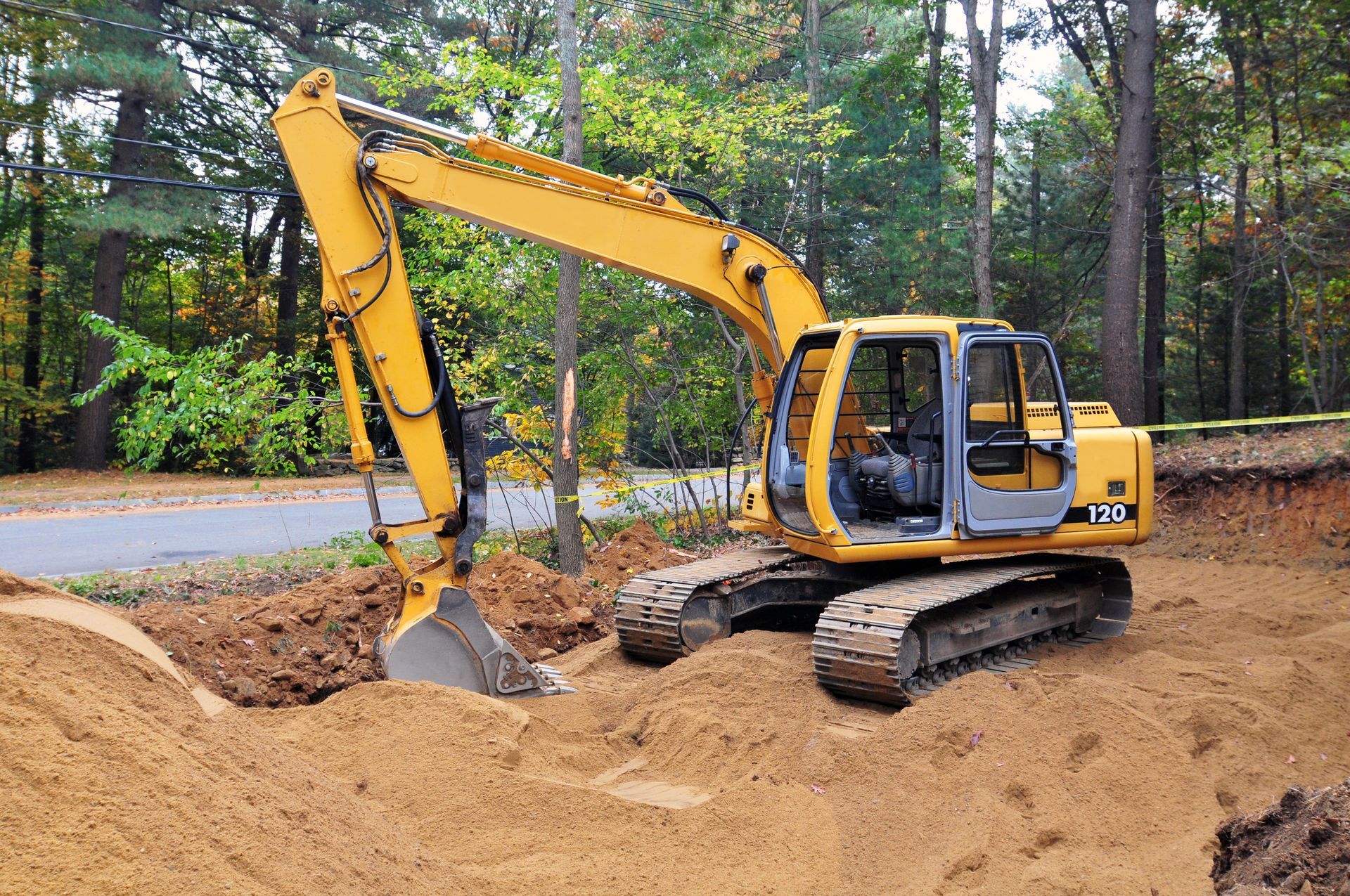August 15, 2025
Before any construction project can begin, there's a vital first step that often goes unnoticed—excavating. Whether you're installing a foundation, building a new structure, or preparing for utility lines, excavation is a highly technical process that requires careful planning, professional oversight, and compliance with local regulations.
If you own property and plan to break ground, it's essential to understand what excavation involves and what must be done before the digging begins. This guide offers a comprehensive overview of what every property owner should know about excavating and how to prepare for a successful project.
Know Your Why: Defining the Purpose of the Excavation
Every excavation project should begin with a clearly defined goal. Are you preparing for foundation work, utility installations, site grading, or landscaping infrastructure? Each of these objectives comes with different excavation requirements in terms of depth, scale, and approach.
By identifying the purpose of the project, excavation contractors can determine the necessary equipment, timelines, and safety measures to move forward efficiently and legally.
Conduct a Proper Site Assessment
A thorough site assessment is essential before any excavation begins. Soil conditions, drainage patterns, vegetation, and terrain must all be evaluated. Rocky ground, high clay content, or sandy soil can significantly affect the equipment used and the project's timeline.
Qualified contractors use advanced tools and years of experience to assess these variables and develop a detailed excavation plan that minimizes environmental and structural risks.
Always Call Before You Dig
No matter the size of the project, underground utility lines pose a significant risk. Striking water, gas, electric, or communication lines can result in severe injuries, legal liability, or costly service outages.
That's why the law requires utility locating services before any digging starts. In most areas, property owners or contractors must contact 811 to request a site marking. This free service ensures that utility lines are properly identified and marked, preventing unnecessary accidents and project interruptions.
Get the Right Permits and Understand Regulations
Excavation work is governed by strict local and state regulations. Most projects—especially those involving structural changes, utility installation, or large-scale digging—require one or more permits.
According to BusinessWire, roughly 30% of excavation projects in 2025 face delays due to regulatory and permitting challenges. Delays like these can be costly and frustrating, especially if the groundwork was scheduled to coincide with other construction phases.
Experienced excavation contractors stay up to date with municipal codes and permit requirements. Their knowledge and connections can significantly reduce wait times and improve overall project flow.
Choosing the Right Equipment for the Job
Excavation contractors determine the appropriate machinery for each project based on site conditions, access, and the type of work being done. From backhoes and bulldozers to trenchers and compact track loaders, each piece of equipment plays a specific role in the excavation process.
Proper use of heavy machinery ensures the work is done accurately and safely. It also minimizes disruption to surrounding areas and prevents property damage.
Account for Erosion and Water Drainage
Once the ground is disturbed, the potential for erosion and water mismanagement increases significantly. Improper drainage can damage your structure, flood neighboring properties, or result in citations from environmental authorities.
Excavation professionals plan ahead by implementing temporary and permanent erosion control measures. These may include silt fences, retention basins, or strategic grading to guide water away from structures. In some cases, stormwater management plans must be submitted for approval before work can begin.
Consider Site Access and Logistics
Large excavation machinery requires clear access to and from the job site. Contractors assess entry points, overhead clearance, and turning radii to avoid disruptions and maintain safety. In residential areas or dense urban zones, this often includes coordinating with neighbors or public works departments to close roads, reroute traffic, or post warning signage.
Failing to account for logistics can lead to delays and even safety hazards. Working with a licensed contractor eliminates these headaches by prioritizing planning and communication at every stage.
Identify and Protect Existing Structures
Excavation work often occurs near homes, retaining walls, fences, or other infrastructure. Without careful preparation, the digging process could compromise these structures.
Professionals assess nearby features and use specialized techniques such as underpinning or trench shoring to maintain stability. This proactive approach helps avoid settlement issues, structural cracks, or property damage.
Prepare for Unexpected Challenges
Excavation frequently uncovers the unexpected—ranging from tree stumps and boulders to outdated utilities or contaminated soil. These discoveries can extend project timelines or trigger new compliance requirements.
Reputable contractors build contingency plans into their project schedules and budgets to accommodate unforeseen obstacles. Their ability to adapt and maintain progress is one of the many reasons professional excavation services are essential.
Always Hire a Professional
While some small digging projects can be tackled by homeowners, most excavation jobs should be handled by licensed professionals. Excavation contractors have the tools, training, and liability insurance to handle challenges safely and efficiently.
Professionals are also more familiar with local zoning laws, permitting processes, and environmental considerations. They can anticipate issues before they arise and offer practical solutions that protect your long-term investment.
Budgeting for Your Excavation Project
Excavating is not something that can be left to guesswork. Professional contractors bring a level of knowledge, training, and liability protection that protects both the property owner and the future integrity of the site.
Licensed excavation professionals:
- Have access to the latest equipment
- Follow OSHA safety regulations
- Carry liability insurance and workers' compensation
- Understand permitting and zoning rules
- Plan for erosion and environmental protection
- Reduce delays caused by inspection failures
Hiring a qualified excavation company is a wise investment in both safety and long-term property value.
Safety Should Always Come First
Excavation is one of the most hazardous construction activities. Collapsing trenches, shifting soil, and machine-related accidents are real risks on any site. That's why working with trained professionals is not just recommended—it's critical.
Professional excavators are trained to:
- Use trench boxes and shoring for deep excavations
- Comply with OSHA safety standards
- Identify and avoid underground hazards
- Wear and require protective gear
- Maintain equipment in safe operating condition
Safety is non-negotiable, and reputable contractors never compromise on this point.
Set a Timeline With a Team
No matter how small or large the job may seem, excavation projects are rarely finished in a single day. Timelines are influenced by:
- Permitting approval wait times
- Soil and weather conditions
- Utility locating delays
- Material delivery schedules
- The complexity of the terrain
Breaking the job into phases allows for flexibility and helps other contractors—such as foundation specialists or utility installers—work efficiently without delay. Your excavation contractor should provide a clear project schedule and keep you informed of progress at every step.
Excavating is the foundation of any successful construction or improvement project. It's a job that demands professional knowledge, regulatory awareness, and an uncompromising commitment to safety. Property owners must understand what's involved, partner with licensed professionals, and build in time for permitting and planning.
If you're ready to break ground, don't take unnecessary risks. Contact a professional excavation contractor at Ostrom Contracting today to schedule a site assessment and discuss your next project. Getting started the right way is the best step toward a safe, timely, and successful outcome. We'll be here to answer any questions you may have about our services!





